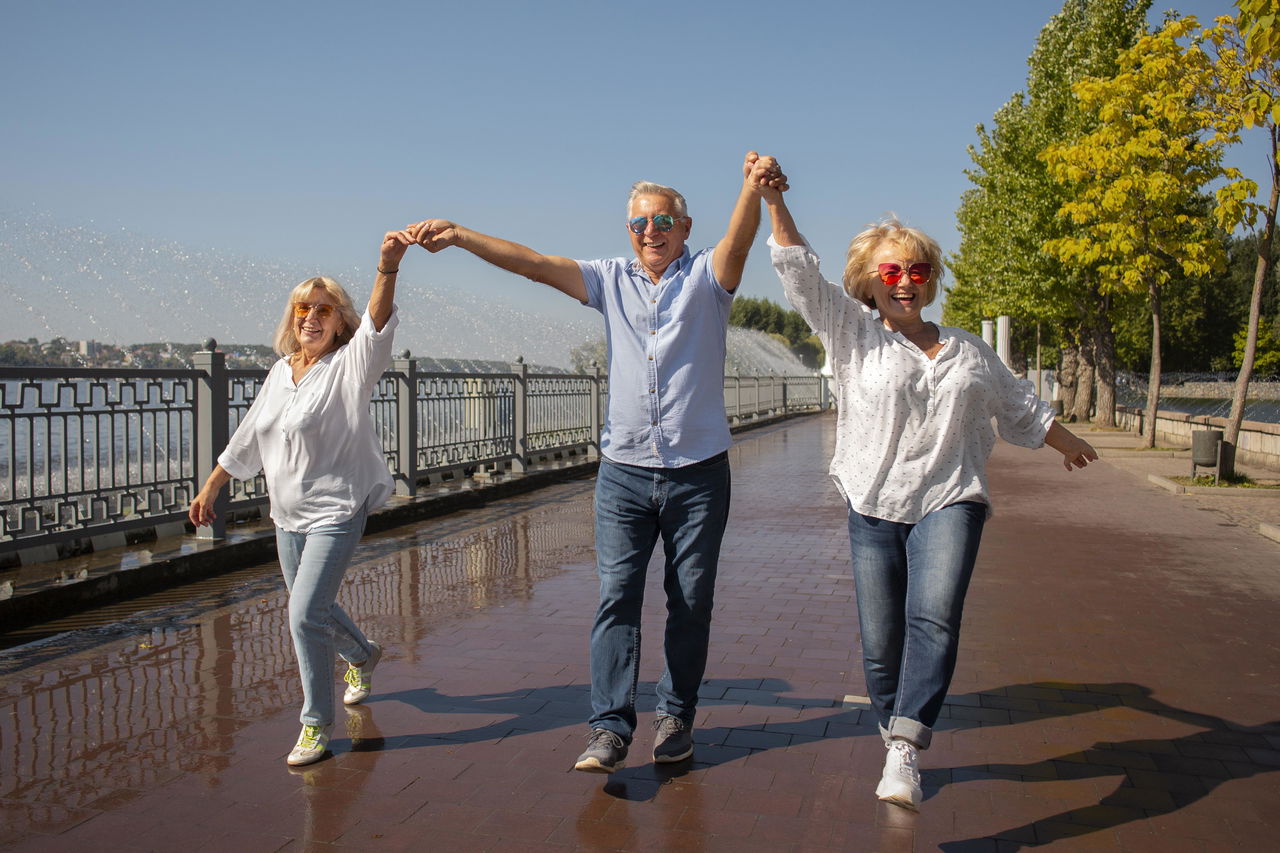Hibrid guide
Secrets of the World’s Longest-Lived People
8 min. read


Written by
Alicia Madison
Published
Fri, 25 Oct 2024
Introduction
In several regions around the world, people consistently live to be over 100 years old in relatively good health. These areas, known as “Blue Zones,” include Okinawa in Japan, Ikaria in Greece, Sardinia in Italy, Nicoya in Costa Rica, and the Loma Linda community in California. Researchers have studied these populations to uncover the lifestyle and environmental factors that contribute to their remarkable longevity. By understanding the secrets of these long-lived people, we can apply similar principles to our own lives and enhance our health and lifespan.
What Are Blue Zones?
The concept of Blue Zones was popularized by National Geographic researcher and author Dan Buettner, who identified five regions with unusually high numbers of centenarians (people over 100 years old). Despite their diverse cultures and environments, people in Blue Zones share common lifestyle habits that contribute to their longevity. These habits center on nutrition, physical activity, social engagement, and stress management. Let’s explore these factors in more detail.
Common Lifestyle Habits of Blue Zone Communities
1. Plant-Based Diets with Minimal Processed Foods
In Blue Zones, people eat diets primarily based on whole, plant-based foods. Staples include vegetables, fruits, beans, nuts, and whole grains, with minimal meat and processed foods. The high fiber content of these diets supports heart health and aids digestion, while antioxidants from colorful fruits and vegetables reduce inflammation and promote cellular health.
2. Regular Physical Activity
Physical activity is an integral part of daily life in Blue Zones, but it’s typically not high-intensity exercise. Instead, people in these regions engage in natural movement, such as walking, gardening, or manual labor. This daily, moderate activity helps maintain cardiovascular health, strength, and mobility well into old age.
3. Strong Social Connections and Community Support
A sense of community and strong social ties are vital in Blue Zones. These communities value family and social support networks, which provide emotional security and reduce stress. Regular social interactions have been shown to boost mental health, reduce depression, and even support immune function.
4. Daily Relaxation and Stress Reduction Practices
People in Blue Zones have simple, effective ways of managing stress. For instance, residents of Okinawa take time each day for "ikigai" (a sense of purpose), while Sardinians and Nicoyans practice religious faith and relaxation rituals. Reducing stress helps lower inflammation in the body, which is linked to a variety of age-related diseases.
5. Purpose-Driven Lives
Having a sense of purpose, or "reason for being," is a common factor among Blue Zone residents. Okinawans call it “ikigai,” and Nicoyans call it “plan de vida.” This sense of purpose motivates individuals to stay active, engage with others, and look forward to each day, which can contribute to longer, healthier lives.
Nutrition Secrets of Long-Lived People
The diets of Blue Zone residents are rich in nutrients that promote longevity. Here are some key nutritional habits and foods that are staples in these regions:
-
Beans and Legumes : A significant source of protein, fiber, and essential nutrients, beans and legumes are consumed daily in Blue Zones. High fiber supports heart health, while protein and antioxidants promote cellular repair and maintenance.
-
Whole Grains : Whole grains like barley, brown rice, and oats provide steady energy and are rich in fiber, vitamins, and minerals. Whole grains also have a low glycemic index, which helps regulate blood sugar levels and reduces the risk of diabetes.
-
Herbs and Spices : Anti-inflammatory herbs like turmeric, garlic, and oregano are frequently used in Blue Zone diets. These herbs and spices not only enhance flavor but also contribute to immune support and reduce inflammation.
-
Moderate, Mostly Plant-Based Protein : Although meat is rarely the main focus, Blue Zone diets occasionally include small portions of fish, eggs, or lean meats. The focus is on plant-based proteins from sources like beans, nuts, and seeds, which are easier to digest and linked to reduced cardiovascular risks.
-
Limited Alcohol, Often in Social Settings : Moderate alcohol consumption, particularly red wine, is common in some Blue Zones, such as Ikaria and Sardinia. Red wine, in moderation, contains antioxidants like resveratrol, which may benefit heart health. However, this is usually enjoyed in a social context, which adds to the mental health benefits of community and relaxation.
Daily Practices That Support Longevity
-
Prioritize Sleep and Rest : Quality sleep is essential for repair, memory consolidation, and hormone balance. People in Blue Zones generally sleep 7-8 hours per night, and many also incorporate short naps during the day. Good sleep hygiene and adequate rest are essential for reducing stress and preventing age-related health issues.
-
Engage in Lifelong Learning and Curiosity : Lifelong learning keeps the mind sharp and adaptable. Many Blue Zone residents continue to learn new skills, stay curious, and engage in mentally stimulating activities well into old age. This mental engagement helps prevent cognitive decline and promotes a positive outlook on life.
-
Maintain Gratitude and Positivity : Having a positive outlook on life can reduce stress and promote emotional well-being. In Blue Zones, people often practice gratitude, connect with their faith, and spend time with family and friends. These practices foster a sense of peace and happiness that supports overall health.
-
Limit Processed Foods and Sugar : Blue Zone diets typically avoid processed foods and refined sugars, which are linked to inflammation, diabetes, and cardiovascular disease. Instead, they consume whole, natural foods that provide sustained energy and essential nutrients, promoting healthier aging.
-
Embrace Natural Remedies and Traditional Medicine : Many people in Blue Zones use natural herbs, teas, and traditional medicine to support health. For example, Ikarian residents often drink herbal teas made from wild mint, sage, and rosemary, which have anti-inflammatory and antioxidant properties.
How to Incorporate Blue Zone Habits Into Your Life
While you may not live in a Blue Zone, you can adopt many of these longevity-enhancing habits. Here are some simple ways to start:
-
Eat More Plant-Based Meals : Try incorporating beans, vegetables, and whole grains into your diet. Start by adding one or two plant-based meals each week, gradually making them a regular part of your routine.
-
Move Naturally Throughout the Day : Instead of scheduling exercise, look for ways to stay active during daily tasks. Take the stairs, walk or bike to nearby locations, and stand up periodically if you have a desk job.
-
Cultivate Meaningful Relationships : Take time to connect with friends and family. Regular social interactions, even brief ones, can make a significant difference in mental and emotional well-being.
-
Find a Personal Sense of Purpose : Reflect on what gives you a sense of purpose, whether it’s family, community work, hobbies, or a personal goal. Write down your intentions and use them to guide daily decisions and actions.
-
Incorporate Relaxation and Gratitude Practices : Start a simple daily practice, like spending a few minutes reflecting on things you’re grateful for, or incorporate deep breathing exercises to relax and reduce stress.
Key Takeaways
The world’s longest-lived people focus on balanced diets, regular movement, strong community ties, stress management, and a sense of purpose. These habits not only enhance longevity but also improve the quality of life. By making small, consistent adjustments inspired by the Blue Zones, you can support your health, happiness, and longevity.
In Conclusion
The secrets of the world’s longest-lived people lie in everyday habits that foster health, joy, and connection. By focusing on whole foods, natural movement, and social engagement, along with stress-reducing practices and a sense of purpose, you can create a lifestyle that promotes both longevity and well-being. Embrace the power of small changes, and take inspiration from the Blue Zones to enhance your own life.

Alicia M.
@alicia_96
Secrets of the World’s Longest-Lived People
